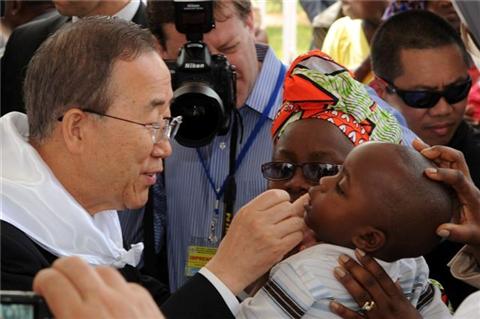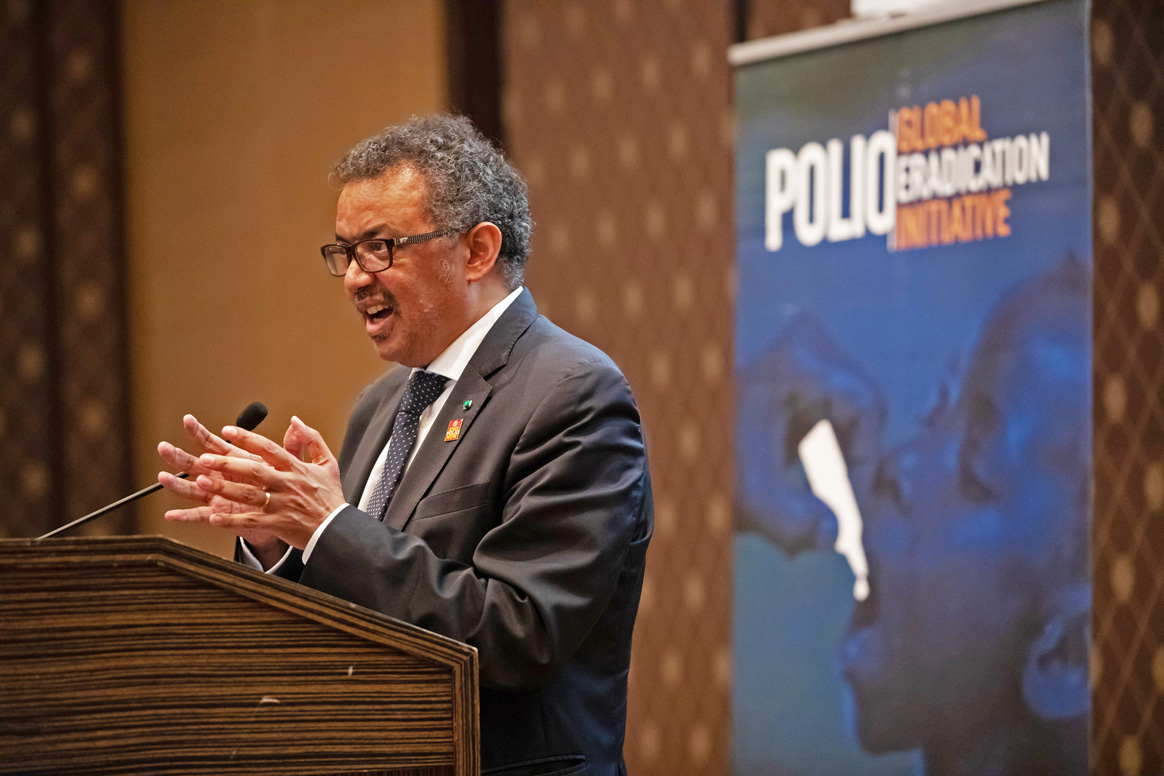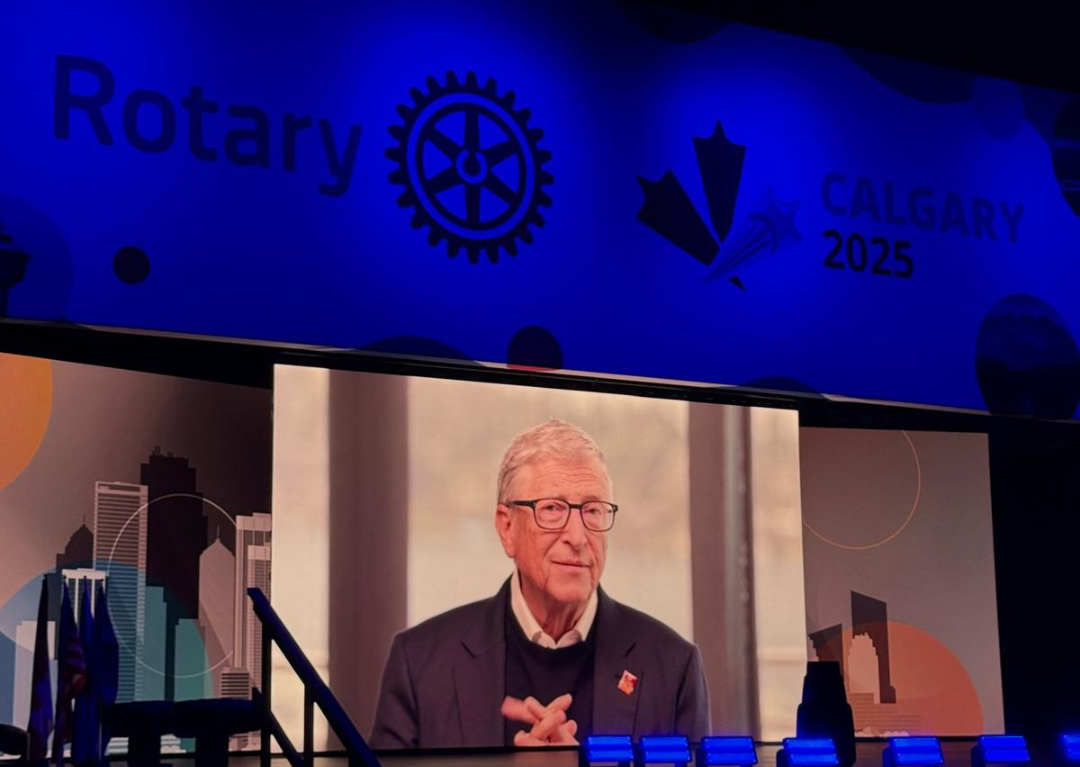UN Secretary-General visits the polio-affected country

29 February 2012 – All Angolans, “health workers, volunteers, mothers and fathers”, must work together to ensure that polio is eradicated and to prevent the country from being re-infected once more– this was the message UN Secretary-General Ban Ki-moon shared during his recent visit to the country.
At the launch of Angola’s National Immunization Days in the capital, Luanda, on 27 February, the Secretary-General told on-lookers “Polio should be tackled as a public health emergency.”
Eradicating polio is one of the Secretary General’s five health priorities for his second term. Ban Ki-Moon also pledged sustainable solutions to improve the supply of drinking water and environmental health to mitigate the risk of water-borne diseases like polio, stressing that Angola leaders understand this priority.
“Efforts to eradicate polio in Angola are on track” he said while paying a tribute to the Government for funding 89% of current operational costs for polio eradication, with a high commitment of the Head of State Jose Eduardo dos Santos.
In his remarks, the Minister of Health, Dr. José Van-Dunem, emphasized the strategy adopted by the Angolan Government to increase the involvement of local authorities and communities in the organization of immunization activities at local level, by ensuring that every house is reached by mobile teams and to conduct synchronized campaigns together with bordering countries.
Despite having previously put a stop to polio transmission in 2001, Angola has been reinfected several times since 2005 and has struggled with ongoing transmission ever since. However, through the dedication of its government (who are financing 88% of the country’s current eradication efforts) and the hard work of its people, Angola has not seen a case since July last year.
Since 2011, Angola has been implementing a new strategy to accelerate the eradication of polio which consists of a greater ownership by provincial Governors, municipal Administrators, and local communities in immunization activities. The new approach also includes local recruitment of vaccinators and supervisors under the coordination of community leaders to ensure that every child is reached during the vaccination campaigns.
The number of wild polio cases in Angola has drastically decreased from 33 in 18 municipalities, in 2010, to 5 cases in two municipalities in 2011.
See the full story here.


